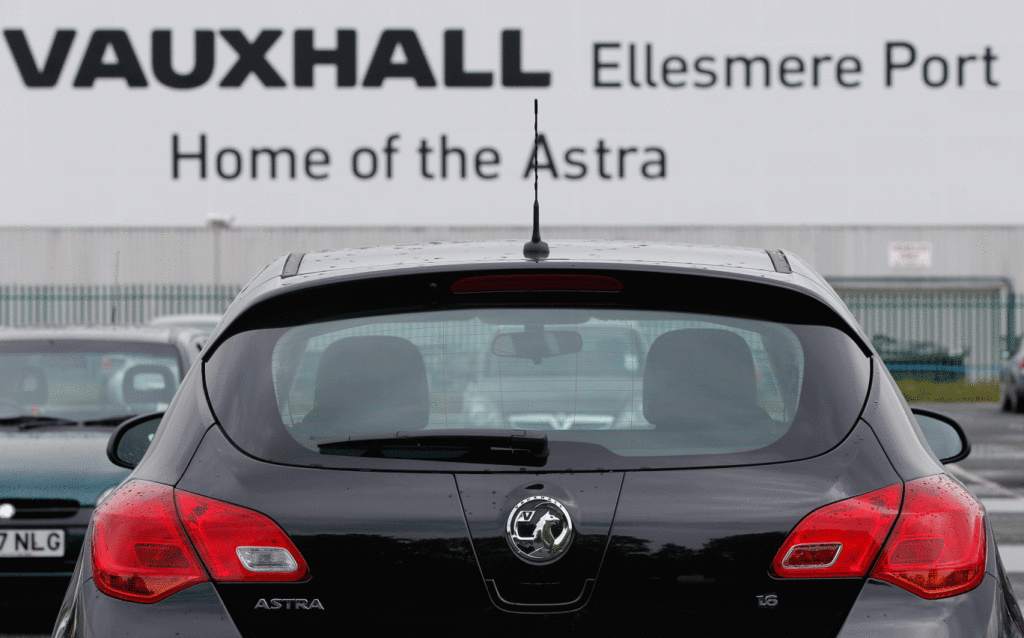London and Paris – PSA Group, Peugeot-owner, announced on Monday that it reached a deal with General Motors to buy the Opel and Vauxhall brands for $2.3 billion.
In addition, PSA will acquire French bank BNP Paribas, financial sector of GM-Europe, for €900 million.
The transaction has a total value of €2.2 billion, for Opel/Vauxhall automotive operations and 100% of GM Financial’s European operations.
The companies issued a joint statement saying that the deal was expected to generate annual savings of £1.5 billion by 2026, with Opel generating an operating profit margin of 2% by 2020 and 6% by 2026.
The transaction value for PSA, including Opel-Vauxhall and 50% of GM Financial’s European operations, will be €1.8 billion.
GM Europe has been suffering and has not made an annual profit since 1999, losing $257 million last year. PSA said it plans to make profit within the upcoming three years.
“Leveraging the successful partnership with GM, PSA expects Opel/Vauxhall to reach a recurring operating margin of 2% by 2020 and 6% by 2026 and to generate a positive operational free cash flow by 2020,” said the joint statement.
PSA expects the deal to be completed by the end of 2017, pointing out that it will add 1.2 million cars by Opel and Vauxhall in Germany, of the company’s total production of 3.15 million cars in 2016.
The statement also indicated that the transaction includes all of Opel/Vauxhall’s automotive operations, comprising Opel and Vauxhall brands, six assembly and five component-manufacturing facilities, one engineering center in Germany, Rüsselsheim, and approximately 40,000 employees. GM will retain the engineering center in Torino, Italy.
Through the acquisition, PSA surpasses Renault and becomes Europe’s second-biggest auto group with about 16% of the European car market after Volkswagen, which owns 24% of the market.
Peugeot CFO Jean-Baptiste De Chatillon said that Peugeot expects to take a continuing charge of around $160 million a year for the pension plans it takes over from GM.
On the sidelines of the press conference, Chatillon said that the company aims to improve the structure of the companies.
British Prime Minister Theresa May told GM chairman and chief executive officer Marry Barra on Sunday that UK jobs need to be protected, as the US car maker put the finishing touches to the sale of its European arm.
May reiterated that she wanted jobs at both plants to be secured for the long term.
“Barra made clear that Vauxhall would remain a British brand and that the deal would recognize and respect all agreements regarding the workforce,” her office said in a statement.
The PM’s official spokesman insisted that no specific assurances had been given to Peugeot to secure the future of the UK plants.
When asked about the impact on Vauxhall’s plants in Britain, the spokesman told reporters: “What we have been keen to stress is our long-term commitment to ensuring the competitiveness of the car industry and that is the message that we have sent to them.”
The workers’ union said it expects a long term insurance for Opel employees and their current positions of work.
Representative of the union said that the current salaries guarantees that positions and workplaces are not changed during the transition.
Barra said that the deal is an accomplishment for GM-Peugeot-Opel because they are in a good position to achieve future successes.
“We believe this new chapter puts Opel and Vauxhall in an even stronger position for the long term and we look forward to our participation in the future success and strong value-creation potential of PSA through our economic interest and continued collaboration on current and exciting new projects,” she added.
However, Barra admitted it was a difficult decision to sell Opel and Vauxhall and insisted the business would have broken even in 2016 had it not been for the UK’s decision to leave the European Union.
